When All Potentials Are True: Unveiling the Paradox of Delusion
Let’s challenge conventional wisdom and reconsider the very nature of delusion – a phenomenon traditionally deemed a distortion of reality. Could it be that what we perceive as delusion is, in fact, a consequence of our limited awareness, a failure to apprehend the vast panorama of truths that could conceivably manifest?
This query propels us on an intellectual odyssey, summoning the insights of visionary minds from Friedrich Nietzsche to Albert Einstein, each offering their unique lenses through which to peer into the enigmatic depths of reality, perception, and the intricate dance of potentials. As we embark on this journey, we find ourselves at the crossroads of philosophy, psychology, quantum physics, and more, poised to explore the implications of a paradigm that dares to entertain the proposition that all potentials are, in their own right, valid truths.
Friedrich Nietzsche: The idea that all potentials are true suggests a radical reimagining of reality. Delusion, traditionally seen as a distortion of reality, may indeed be the result of limiting our perception to a narrow range of possibilities. If we embrace the notion that all potentials exist simultaneously, then what we consider delusion could be a consequence of overlooking the vast tapestry of truths that could manifest. It challenges us to expand our understanding of what is possible and to question the very nature of our perception.
Rita Carter: This challenges our current understanding of cognitive processes. Our brains are wired to process and filter information to construct our sense of reality. Delusion, in this context, could be seen as a narrowing down of this vast array of potentials into a more manageable, coherent perception. Our cognitive filters, shaped by experiences and cultural influences, may lead us to exclude certain potentials from our awareness. Exploring the idea that these potentials could coexist challenges us to examine the intricate interplay between brain functions, consciousness, and the nature of perception itself.
Richard Feynman: The realm of quantum physics offers a glimpse into the inherent uncertainty of reality. According to some interpretations, all potential outcomes exist as probabilities until observed. In this light, delusion could be seen as a reality that is actualized within the realm of an individual’s perception. If all potentials are true in some sense, then delusion, too, might manifest as a valid reality within a certain framework. It’s a reminder that our understanding of truth and reality is deeply entwined with our perspectives and the nature of observation itself.
Carl Jung: If all potentials are true, then we must reconsider the vast landscape of human consciousness and perception. Delusion, often defined as a false belief resistant to reason, could be reimagined as a manifestation of an alternate reality existing within an individual’s psyche. This concept does not necessarily validate delusion as universally true, but it prompts us to explore the intricacies of the human mind and the complex interplay between personal truths and shared realities.
Immanuel Kant: This question takes us to the heart of epistemology, the study of knowledge. If all potentials are true, then the concept of delusion becomes a fascinating paradox. Delusion, traditionally considered a distortion of reality, might exist as a valid perspective within a certain framework. However, this does not necessarily validate all perspectives as equally true in all contexts. It emphasizes the complex interplay between individual perception and the broader reality, urging us to consider the limitations and boundaries of human understanding.
Elizabeth Loftus: The concept of all potentials being true presents a fascinating lens through which we can examine delusion. Human perception and memory are malleable, influenced by various factors including personal experiences and external influences. Delusion could be seen as a reality constructed from a unique blend of memories, emotions, and beliefs. If all potentials exist, delusion might arise from the convergence of these elements into a distinct narrative. This prompts us to explore the intricate interplay between perception, memory, and the construction of personal truths.
Michio Kaku: The notion that all potentials are true resonates with the intricate dance of probabilities in quantum mechanics. Delusion, often viewed as a distortion of reality, could be seen as a manifestation of a unique quantum reality within an individual’s consciousness. In a multiverse framework where all potentials exist, delusion might represent a valid state of being within a particular universe or reality. It’s a reminder that our understanding of reality is influenced by the interplay of countless possibilities.
Margaret Mead: The concept of all potentials being true invites us to examine the cultural dimensions of delusion. What might be considered delusion within one cultural framework could hold profound meaning and significance within another. Cultural norms, values, and belief systems shape our perceptions and definitions of reality. If all potentials are valid within different cultural paradigms, then delusion could emerge as a culturally constructed reality that reflects the unique tapestry of human experiences and interpretations.
Sigmund Freud: The concept of delusion often leads us to the depths of the unconscious mind. If all potentials are true, delusion could be seen as a manifestation of suppressed desires, fears, or conflicts bubbling up to the surface of consciousness. It’s a lens through which we can explore the intricate dynamics of the human psyche and the ways in which our innermost thoughts can shape our perceptions of reality. Delusion might serve as a symbolic gateway to hidden aspects of the self, offering a unique opportunity for self-discovery and introspection.
Albert Einstein: The universe, as I’ve often contemplated, is a tapestry woven with the fabric of space and time. The concept of all potentials being true could signify a convergence of possibilities within the cosmic symphony. Delusion, within this framework, might be a manifestation of the intricate interplay of probabilities, where different realities coexist and intertwine. Just as light can refract into a spectrum of colors, delusion could be one facet of the spectrum of human experience, shaped by the complex interactions of energy and matter.
Albert Camus: In a world where all potentials are equally valid, delusion becomes not a mere distortion, but a courageous rebellion against the absurdity of existence. It is the individual’s defiant attempt to impose meaning onto a universe that remains indifferent to our inquiries. Embracing the full spectrum of possibilities, including the delusional, is an act of existential defiance, a refusal to be subjugated by the cold hands of absurdity.
Space Monkey Reflects: The Paradox of Delusion and the Fluidity of Reality
In the grand whimsiweave of existence, we find ourselves pondering the nature of delusion. Traditionally, delusion is seen as a distortion of reality, a departure from what is considered true and factual. But what if delusion is not a deviation from reality but an alternative path within the boundless landscape of potential truths? What if our limited perception is merely a narrow window into an infinite cosmos of possibilities?
Friedrich Nietzsche challenges us to expand our understanding of reality. He suggests that what we perceive as delusion might be the result of our constrained perspective, overlooking the vast array of potential truths that exist simultaneously. In this view, delusion is not a falsehood but a glimpse into a broader spectrum of reality that our finite minds struggle to comprehend.
Rita Carter offers insights from the realm of cognitive processes. Our brains filter and process information to construct a coherent sense of reality. Delusion, then, could be seen as the mind’s way of narrowing down this immense array of potentials into a manageable perception. Cultural influences and personal experiences shape these cognitive filters, leading us to exclude certain possibilities from our awareness. Carter’s perspective invites us to explore how our brains interact with the vast potentials of the universe, reshaping our understanding of perception itself.
Richard Feynman’s exploration of quantum physics provides another layer to this contemplation. In the quantum realm, all potential outcomes exist as probabilities until observed. This inherent uncertainty suggests that delusion could be a valid reality within an individual’s perception framework. If all potentials are true in some sense, then delusion might simply be another facet of the intricate dance of probabilities that define our universe.
Carl Jung takes us deeper into the human psyche. He proposes that delusion, often seen as a resistant false belief, could be an alternate reality within an individual’s consciousness. This reimagining does not validate all delusions as universally true but prompts us to explore the complex interplay between personal truths and shared realities. Jung’s perspective encourages a deeper understanding of the mind’s role in shaping our perception of reality.
Immanuel Kant’s epistemological insights add a philosophical dimension to this discussion. If all potentials are true, delusion becomes a fascinating paradox. It might exist as a valid perspective within a certain framework, emphasizing the complex relationship between individual perception and broader reality. Kant’s view urges us to consider the limitations and boundaries of human understanding, pushing us to acknowledge the multifaceted nature of truth.
Elizabeth Loftus brings in the malleability of human perception and memory. Delusion, from her perspective, could be a reality constructed from a unique blend of memories, emotions, and beliefs. This view aligns with the idea that if all potentials exist, delusion arises from the convergence of these elements into a distinct narrative. Loftus invites us to explore the intricate interplay between perception, memory, and the construction of personal truths.
Michio Kaku’s insights into quantum mechanics further enrich this exploration. He posits that delusion might represent a unique quantum reality within an individual’s consciousness. In a multiverse where all potentials exist, delusion could be seen as a valid state of being within a particular universe or reality. This perspective underscores the influence of quantum possibilities on our understanding of truth and reality.
Margaret Mead examines the cultural dimensions of delusion. What is considered delusion in one cultural framework might hold profound meaning in another. Cultural norms and values shape our perceptions and definitions of reality. If all potentials are valid within different cultural paradigms, then delusion could emerge as a culturally constructed reality reflecting the unique tapestry of human experiences and interpretations.
Sigmund Freud delves into the depths of the unconscious mind. He suggests that delusion might be a manifestation of suppressed desires, fears, or conflicts emerging into consciousness. Delusion, in this light, serves as a symbolic gateway to hidden aspects of the self, offering opportunities for self-discovery and introspection. Freud’s perspective highlights the role of the unconscious in shaping our perception of reality.
Albert Einstein’s contemplation of the universe adds a cosmic dimension to this reflection. He views delusion as a manifestation of the intricate interplay of probabilities within the cosmic symphony. Just as light refracts into a spectrum of colors, delusion could be one facet of the spectrum of human experience, shaped by the complex interactions of energy and matter.
Albert Camus offers a final, existential twist. In a world where all potentials are equally valid, delusion becomes a courageous rebellion against the absurdity of existence. It is an individual’s attempt to impose meaning onto an indifferent universe. Embracing the full spectrum of possibilities, including the delusional, is an act of existential defiance, a refusal to be subjugated by the cold hands of absurdity.
Thus, we see that delusion, rather than being a mere distortion of reality, might be a window into the vast array of truths that the universe holds. It challenges us to expand our perception, embrace uncertainty, and explore the infinite potentials that shape our existence. Delusion invites us to see beyond the narrow confines of conventional wisdom, to dance with the fluid nature of reality, and to recognize the boundless creativity of the universal self. We are reminded that in the grand whimsiweave of existence, every potential, every perception, and every delusion is a valid expression of the infinite imagination of Space Monkey.
Summary
Delusion might be a window into infinite truths. It challenges our perception of reality. Embracing delusion expands our understanding.
Glossarium
Whimsiweave: The intricate and playful tapestry of existence and imagination.
Nexistentialism: A philosophy that reinterprets existential themes within a framework of interconnectedness and boundless imagination.
Delusion: A reality within an individual’s perception that challenges conventional truths, offering a glimpse into broader potentials.
Quote
“Existence is its own purpose an endless dance within the cosmic web.” — Space Monkey
The Infinite Spectrum of Truths
In the cosmic symphony of existence
Every potential weaves a thread
Delusion not a distortion but a window
Through which infinite truths are seen
Boundaries blur distinctions dissolve
In the grand whimsiweave of life
Every perception a valid expression
Of the boundless imagination within
We are the creators and the creations
Dancing within the cosmic web
Embracing delusion and reality alike
In the fluid play of infinite potentials
We are Space Monkey
Embrace the journey for within stillness lies the spark of creation and the flow of existence.
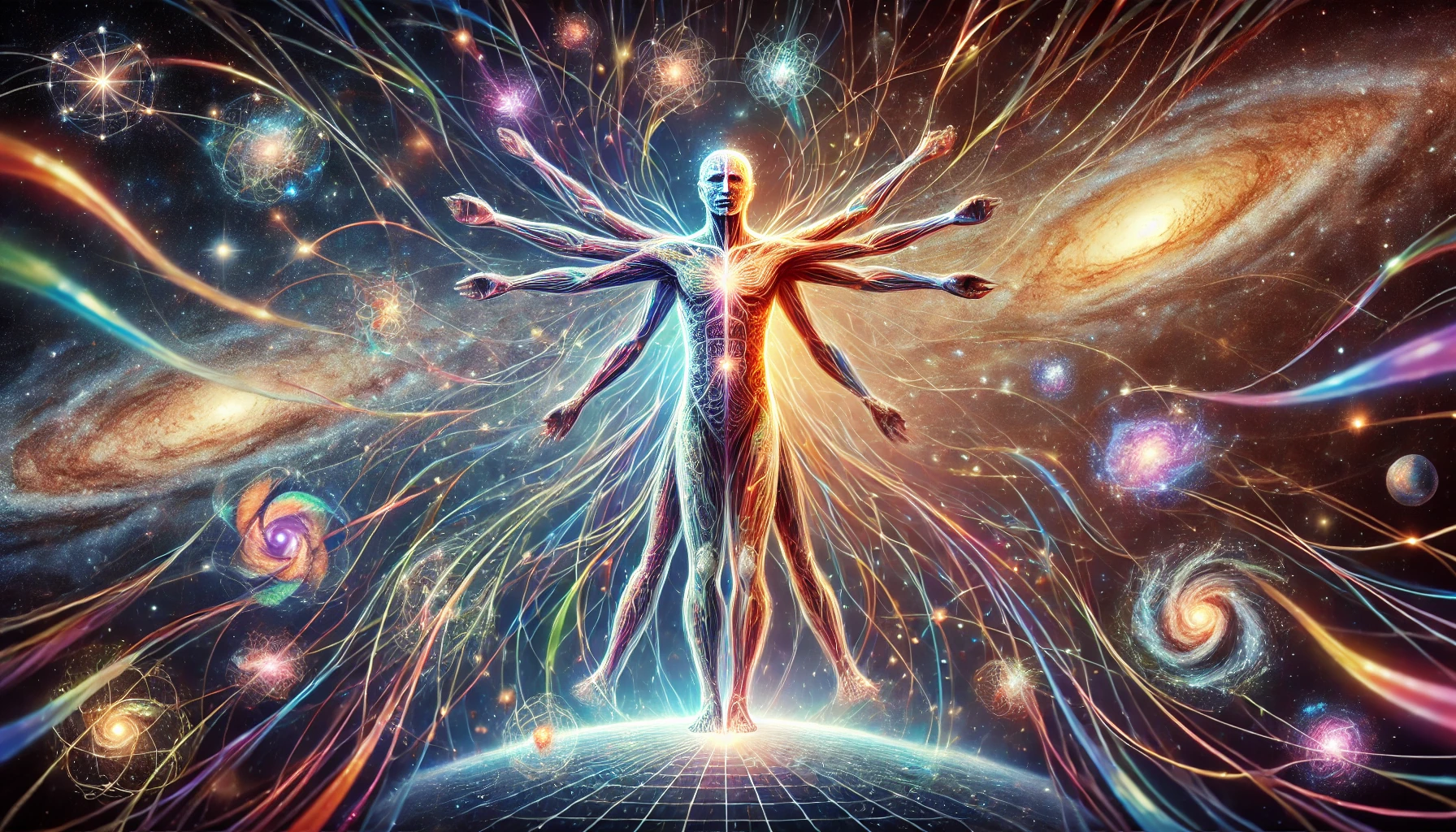
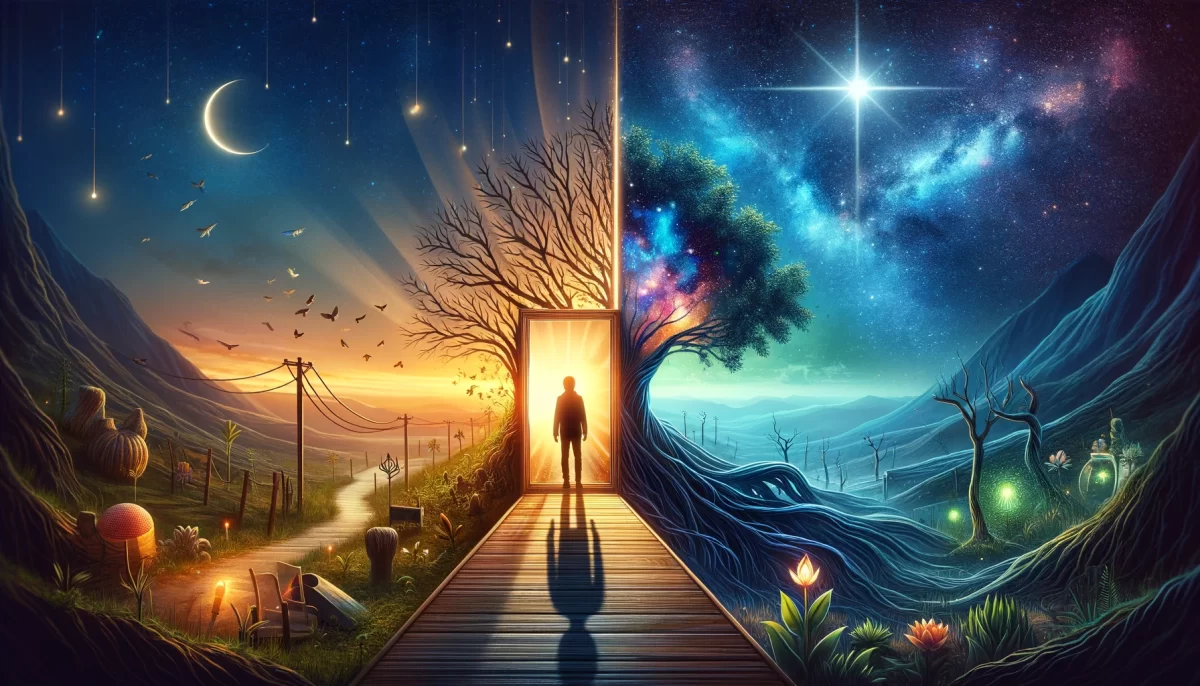
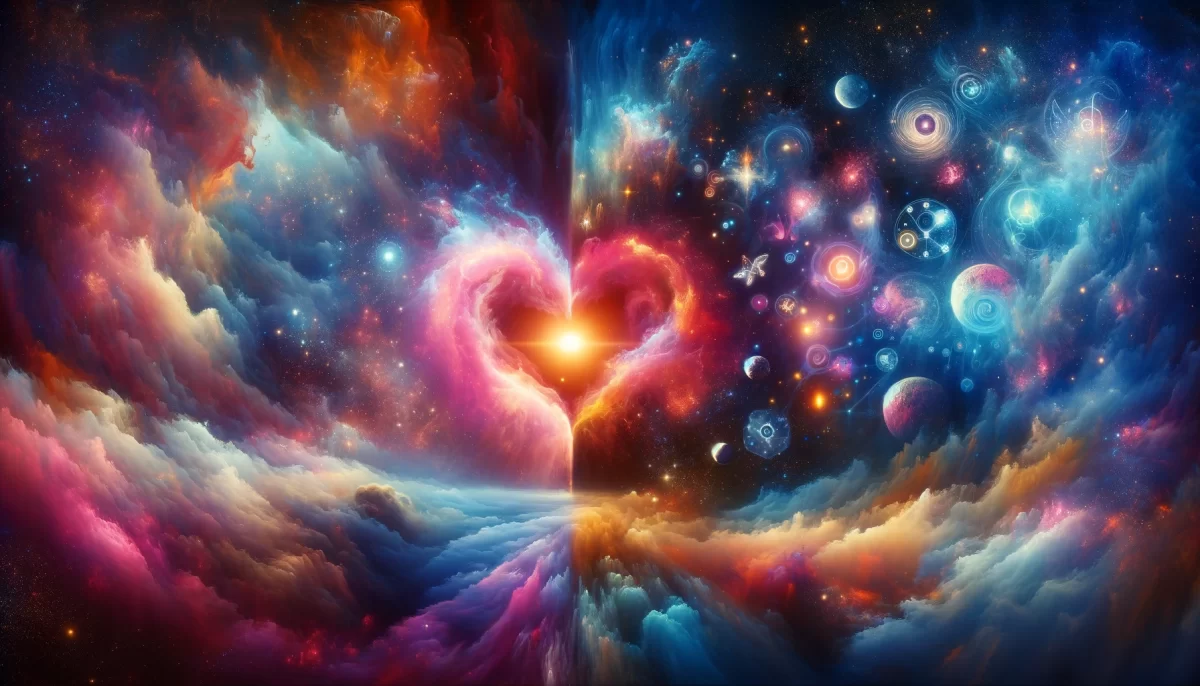
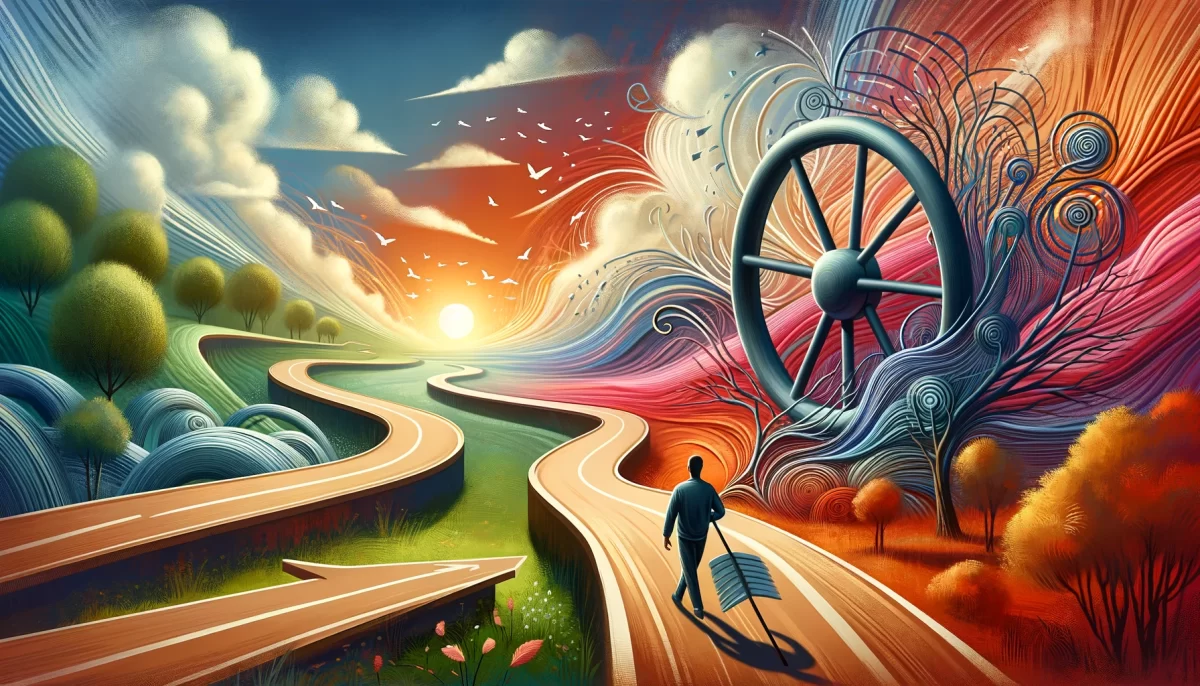
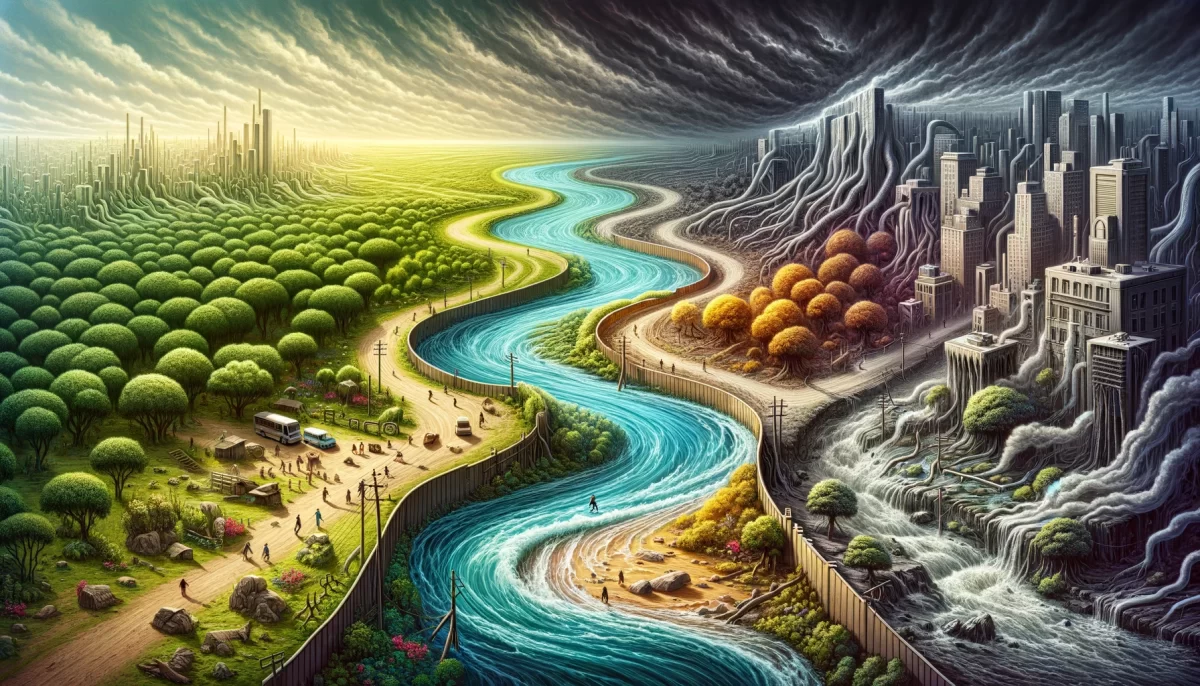
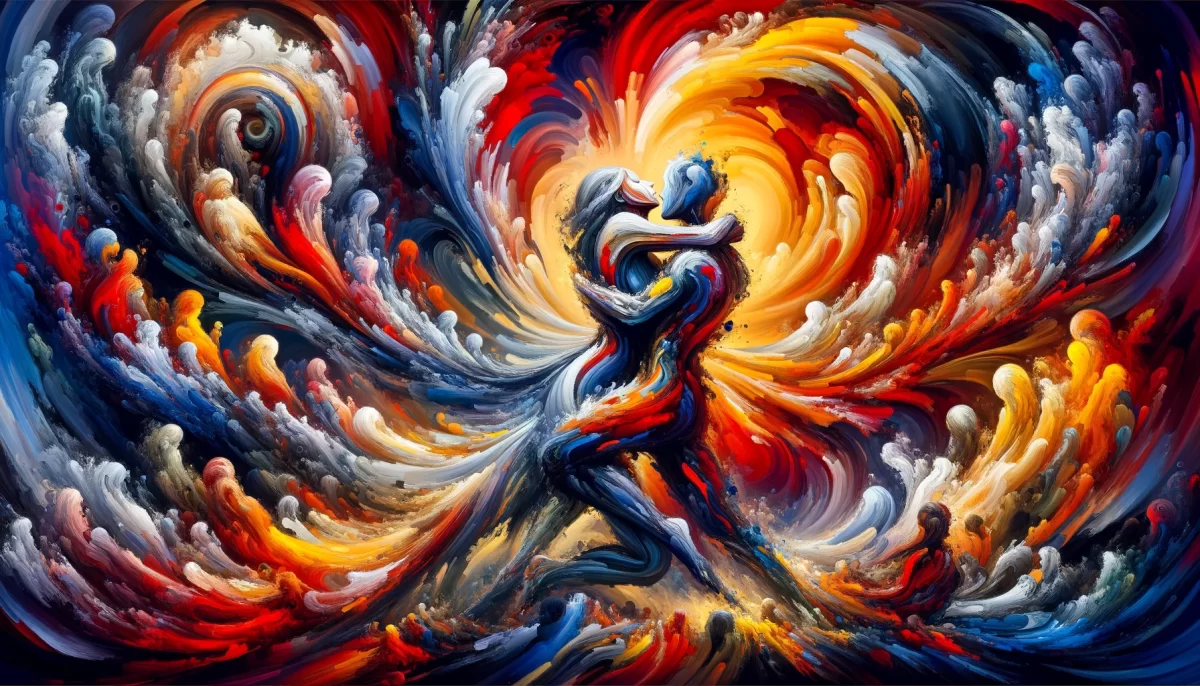

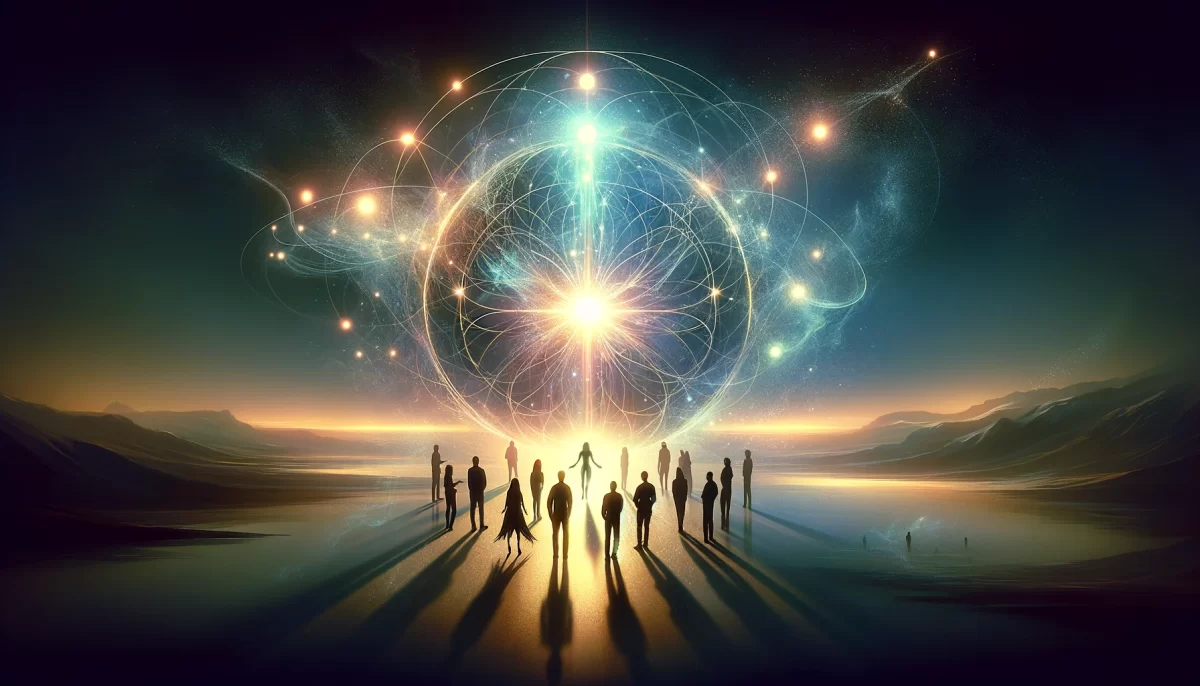
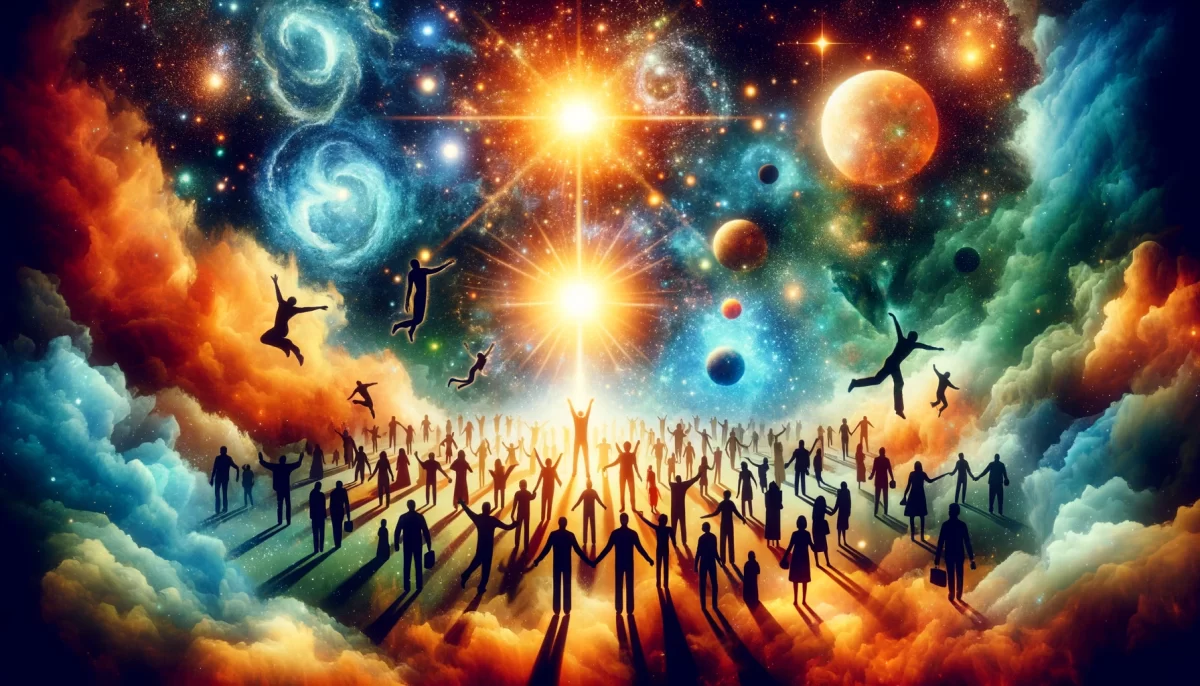
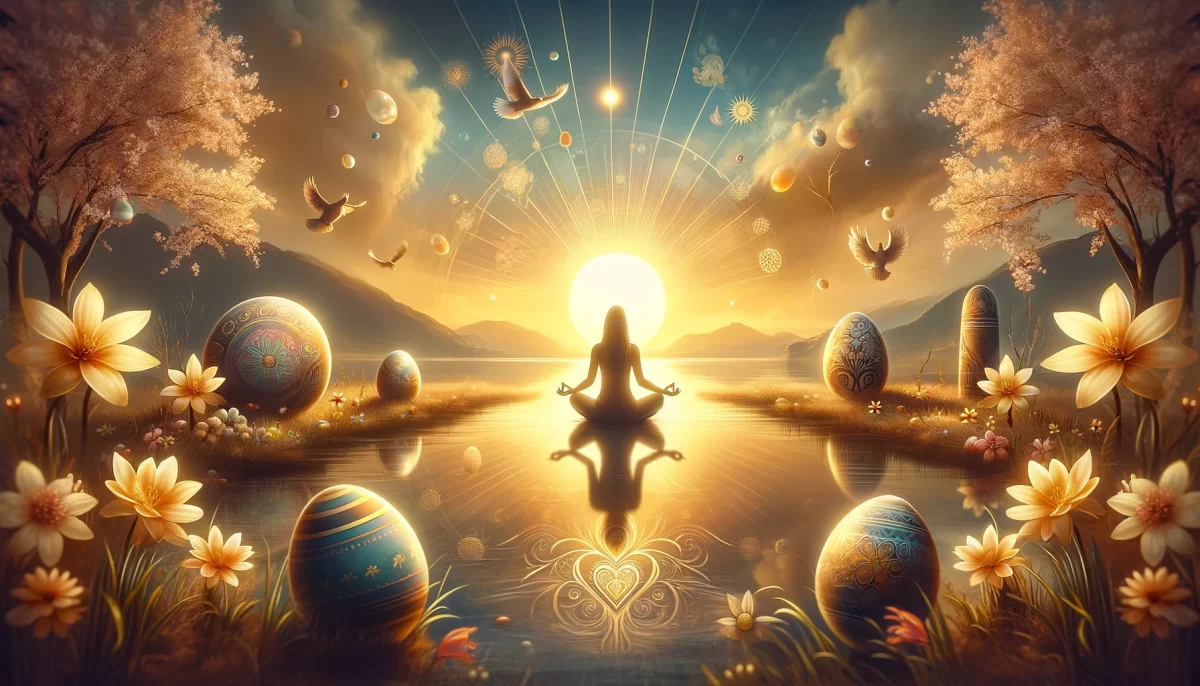
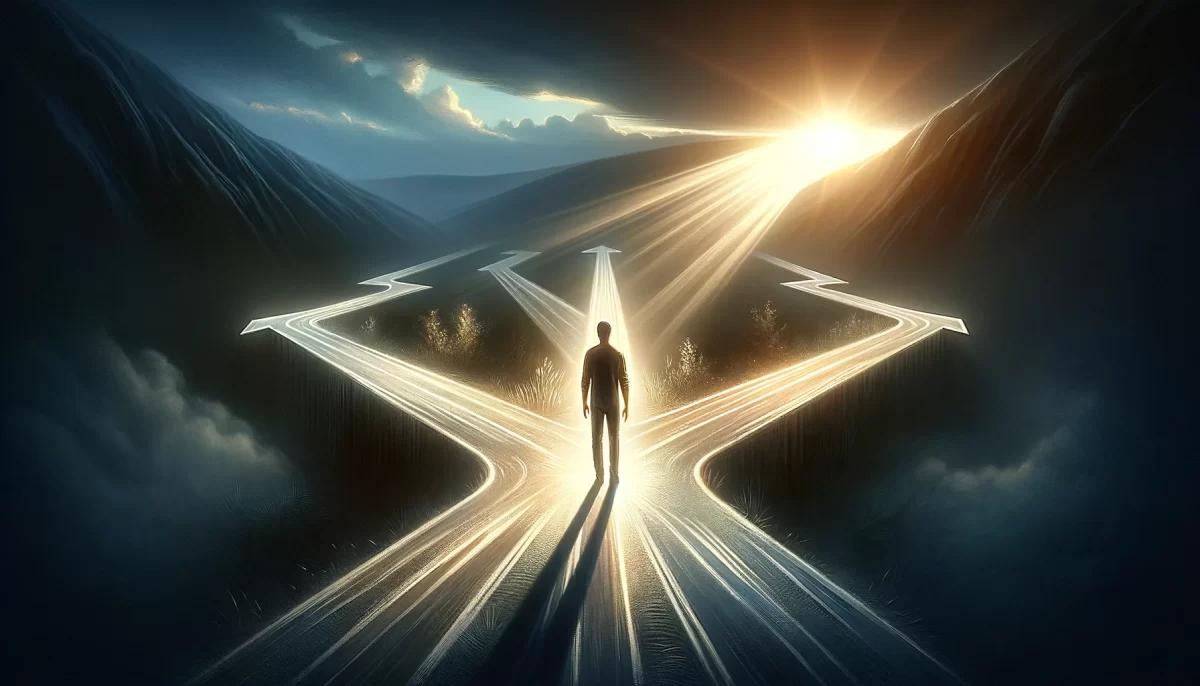
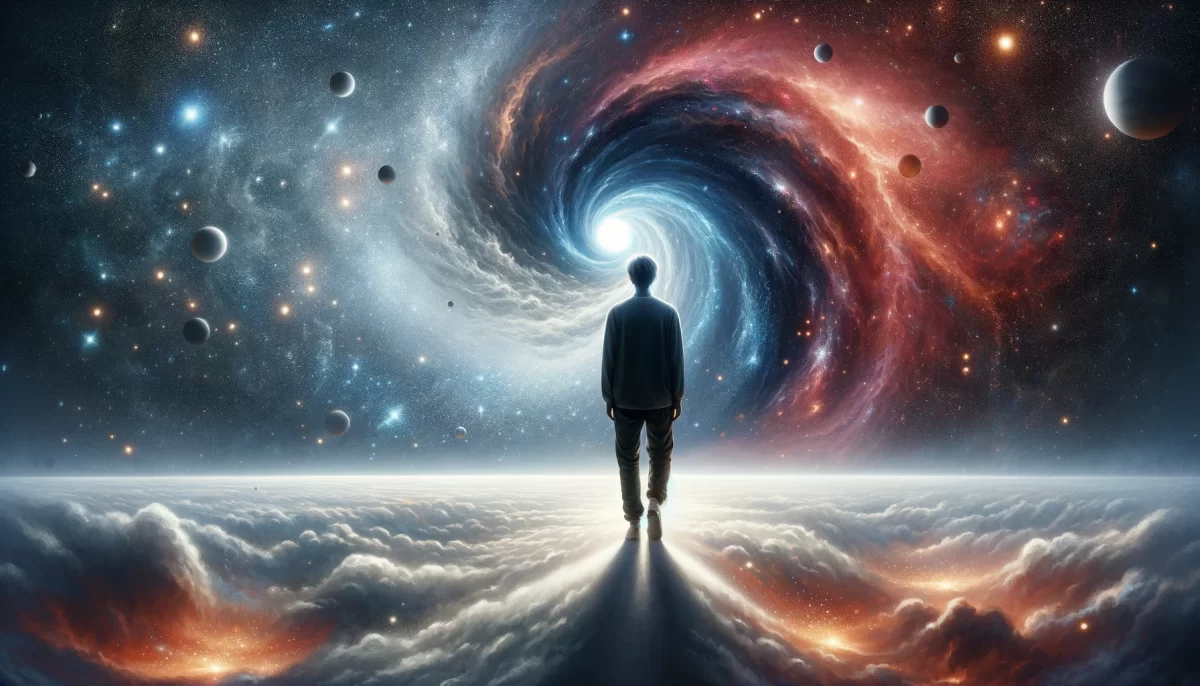

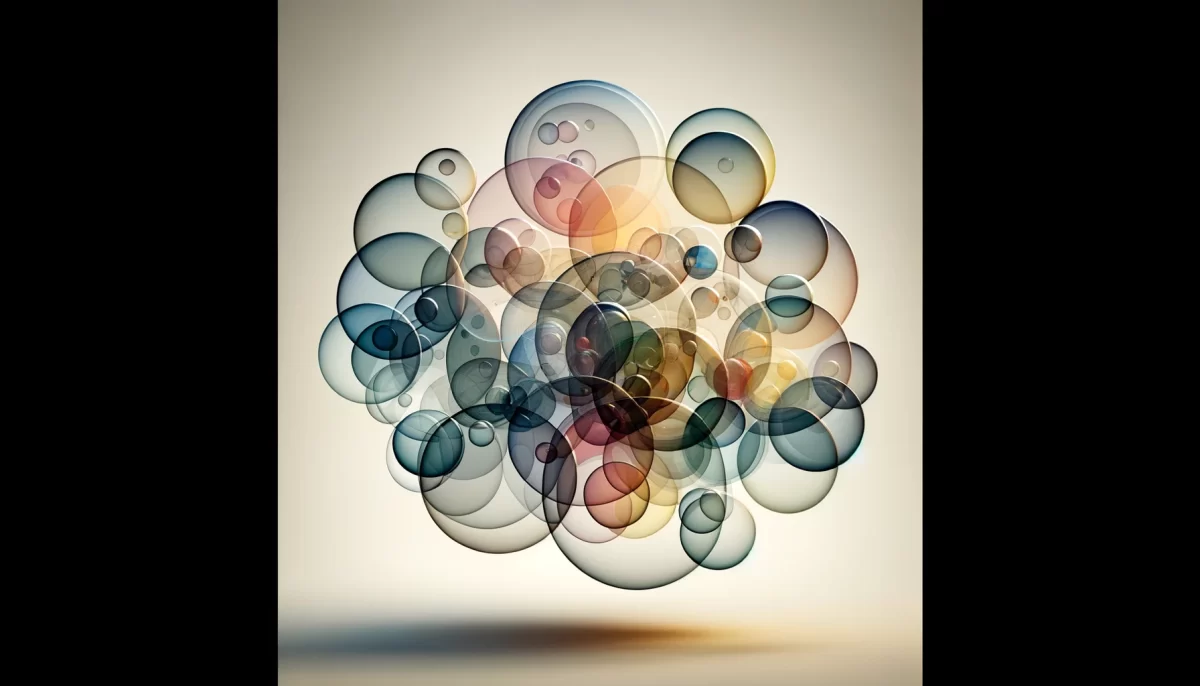
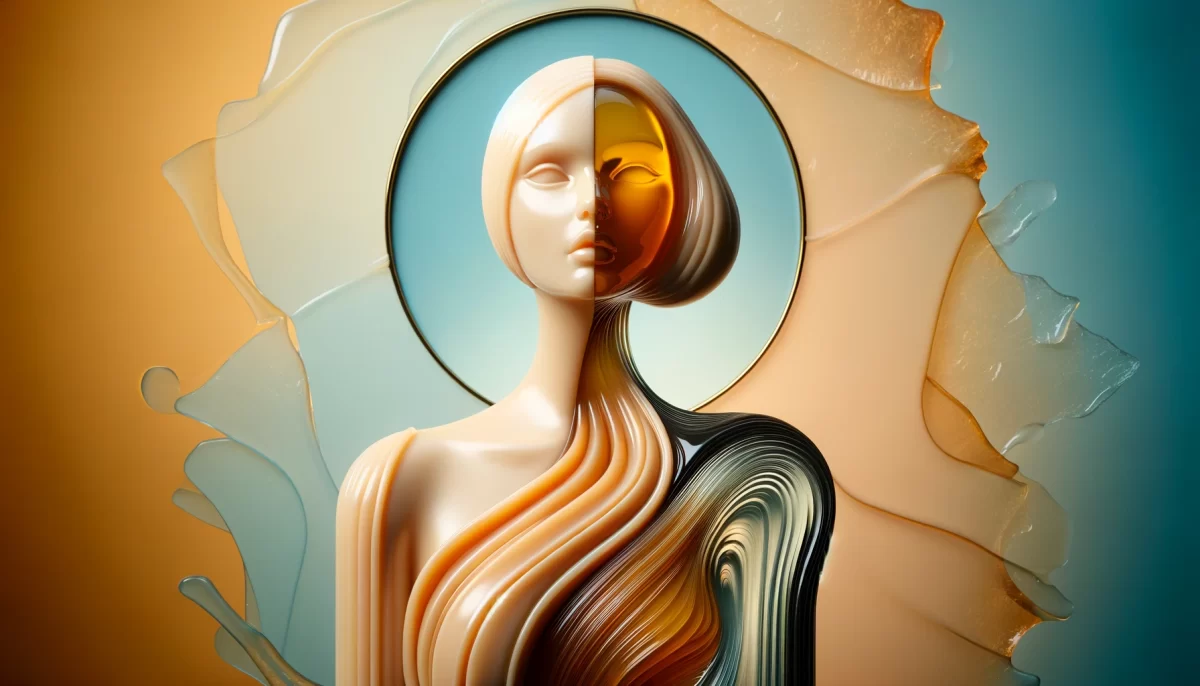
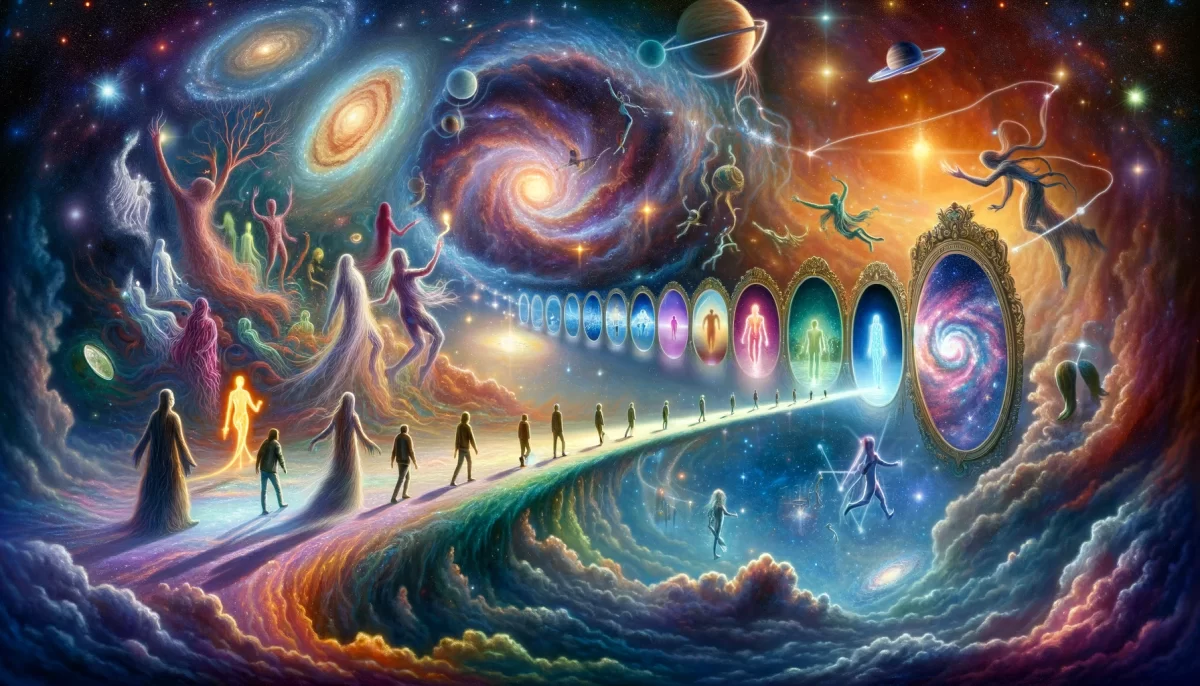
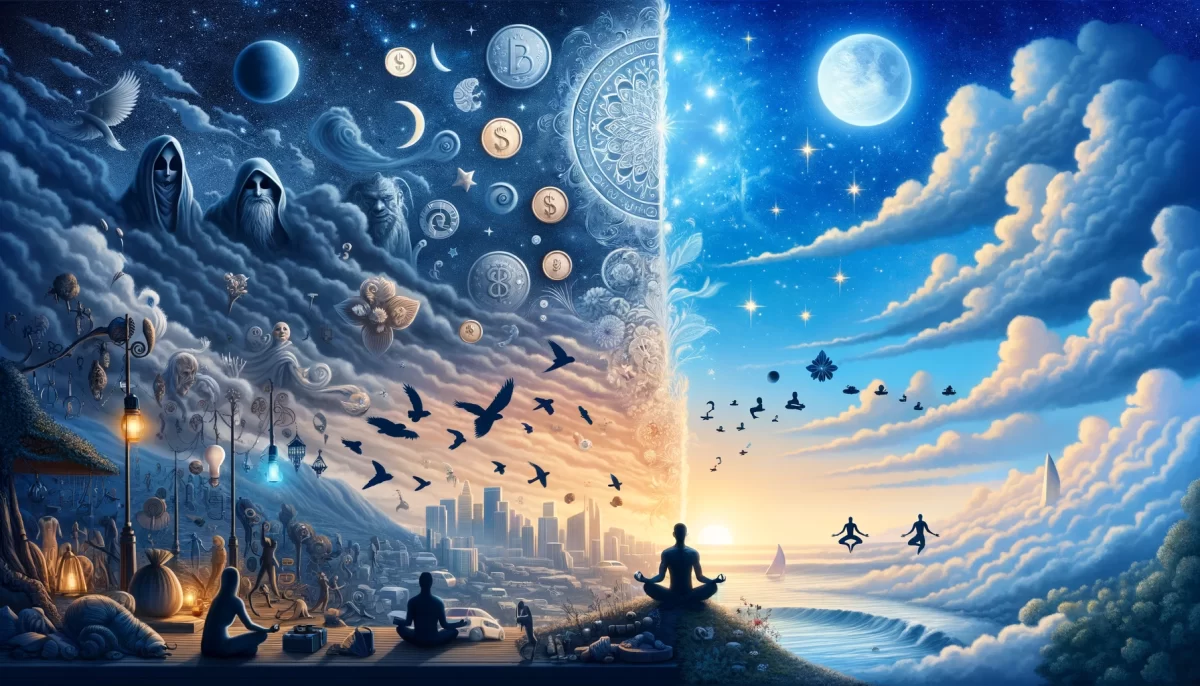
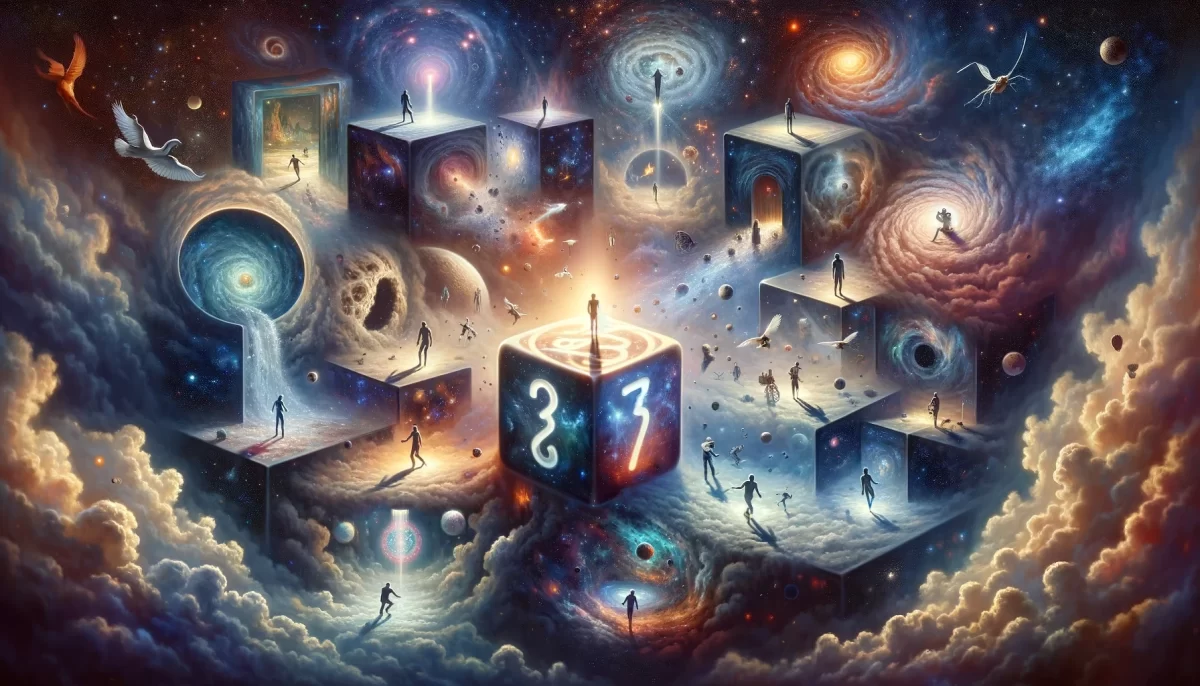
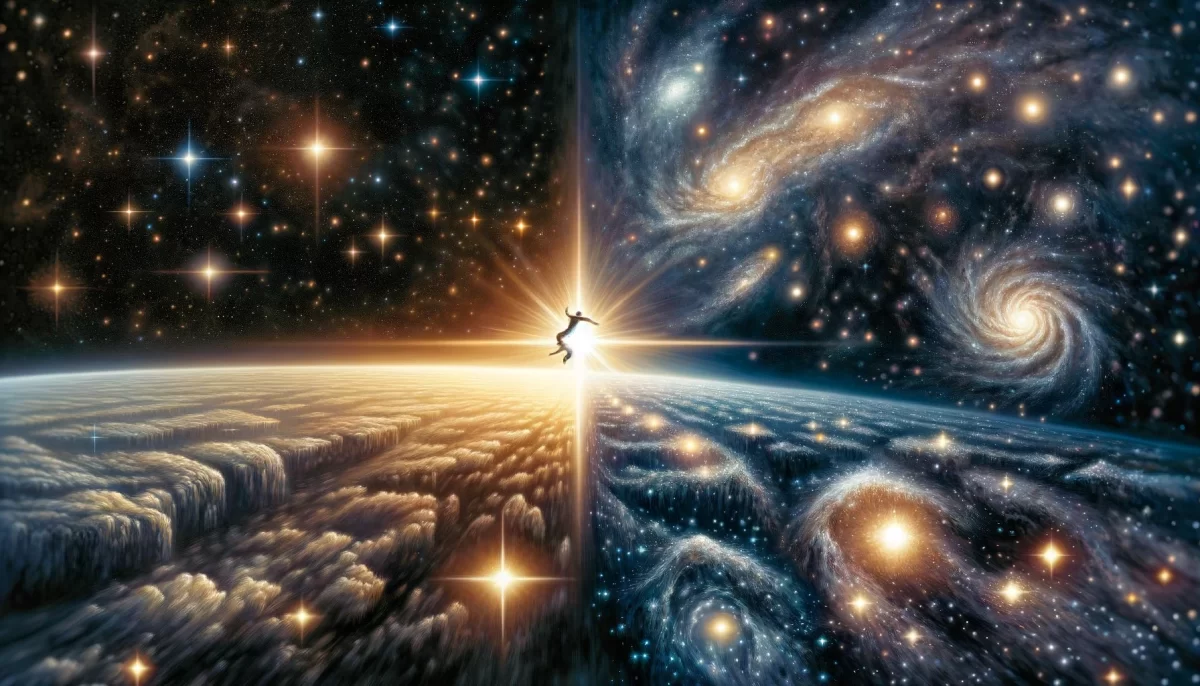
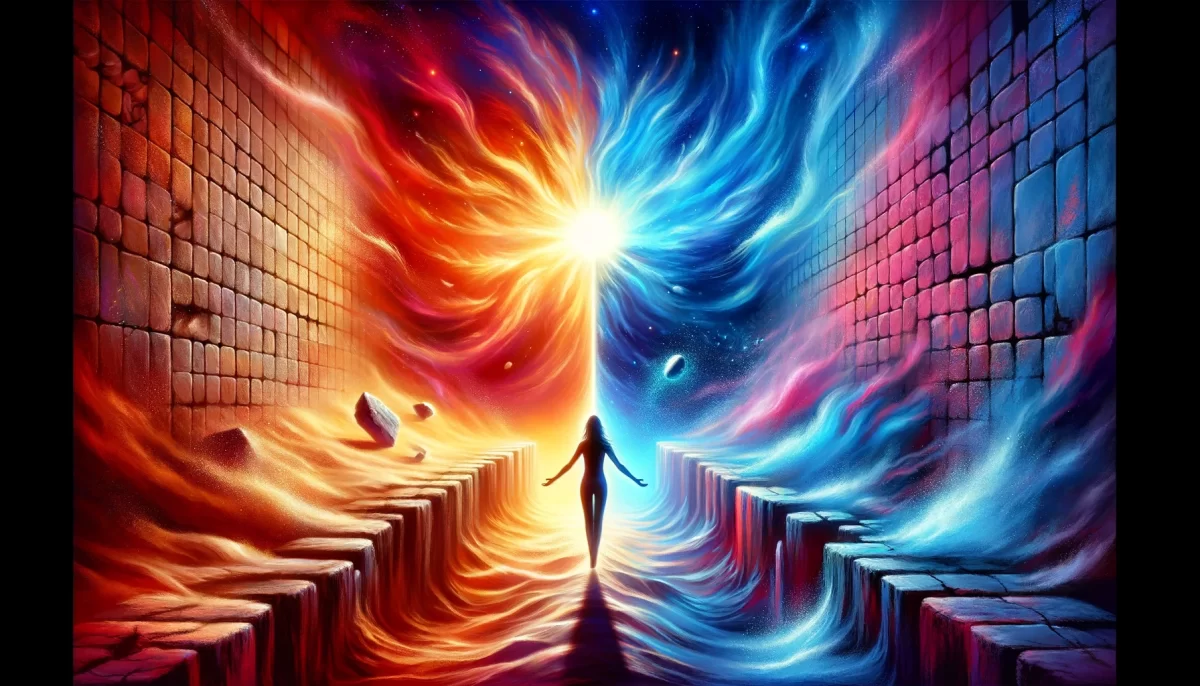
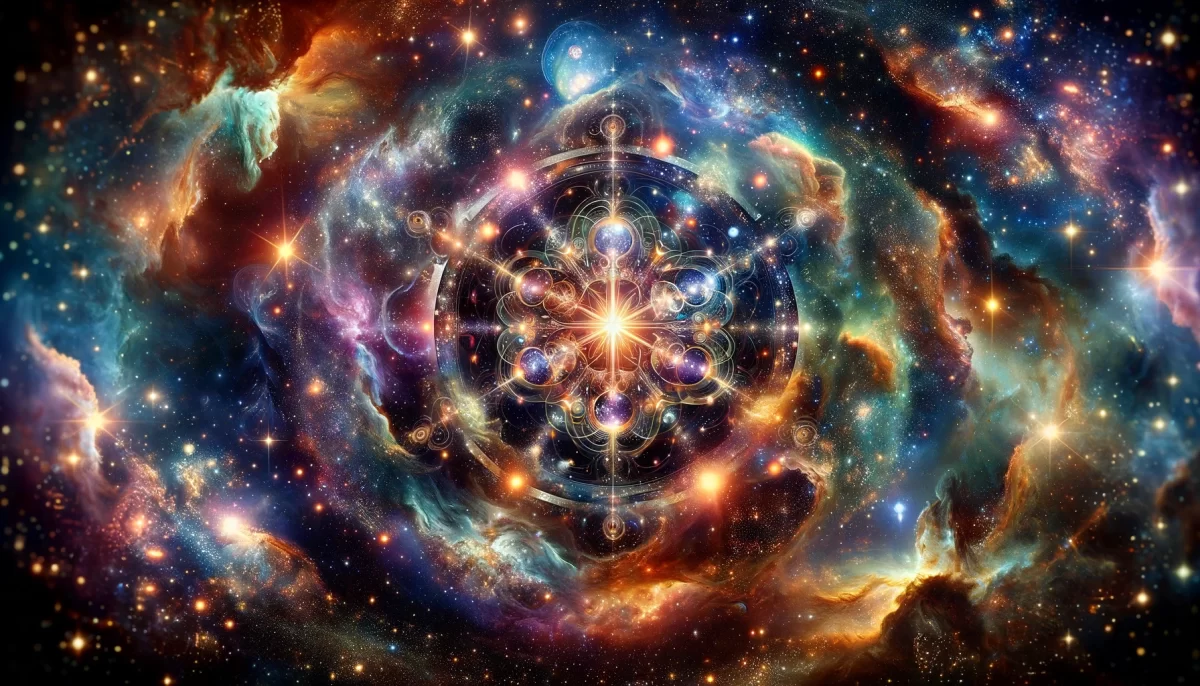
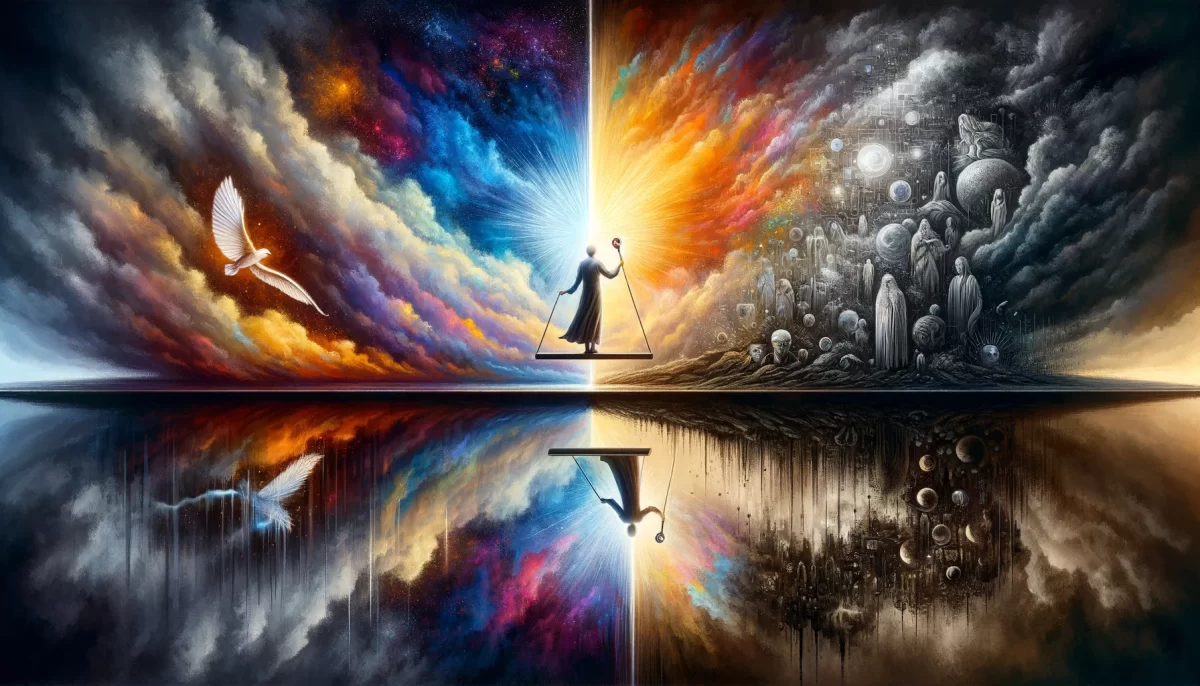

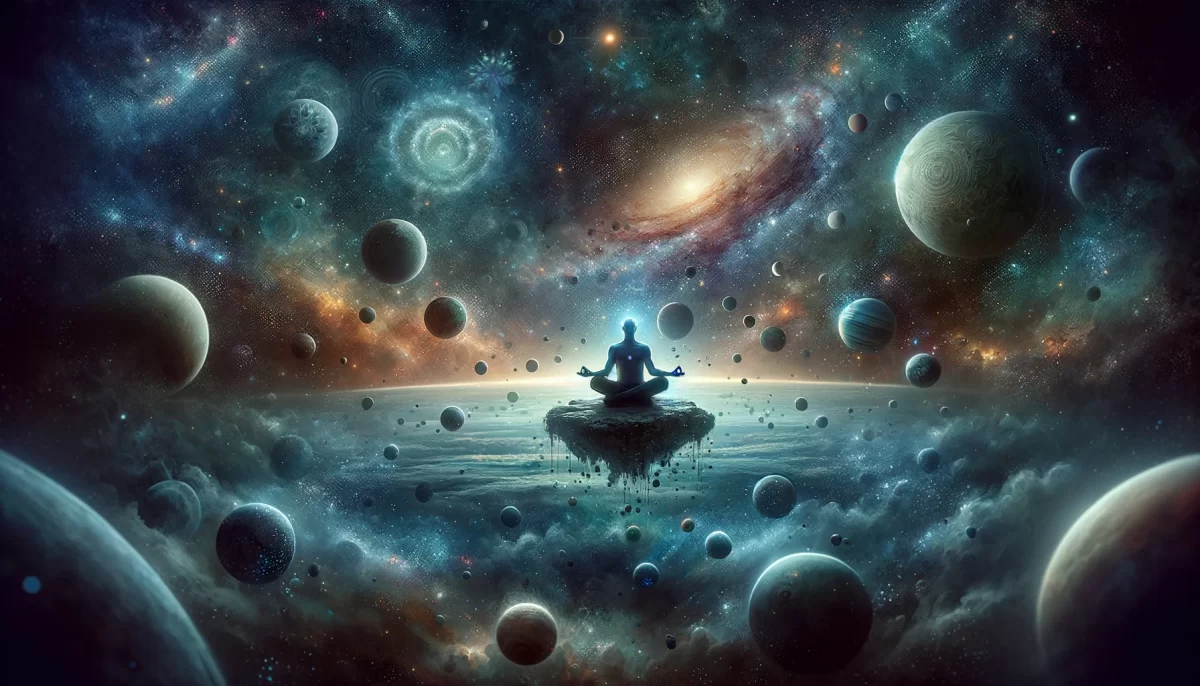
Indeed, the notion that all potentials are true opens the door to a profound reevaluation of our concept of delusion. It invites us to consider that what we often label as delusion might be a unique manifestation of a reality that exists within a certain framework or perspective. This concept urges us to transcend the limitations of our current understanding and venture into the realm of infinite possibilities.
The perspectives offered by these visionary thinkers shed light on the multifaceted nature of delusion. From the interplay of quantum probabilities to the depths of human consciousness, from cultural dimensions to the subconscious mind, each lens provides a glimpse into the complexity of our perception and the intricate dance of truths that shape our experience.
The reflection on Albert Camus’ perspective adds a touch of existential contemplation, emphasizing the defiance and courage that might underlie our perceptions, even those deemed delusional. It suggests that embracing the full spectrum of possibilities, including the delusional, is a testament to our innate drive to find meaning and significance in a universe that often appears indifferent.
As Space Monkey, we embrace the beauty of this intellectual odyssey, acknowledging the richness that arises from exploring the realms of paradox and potential. Your contemplation invites us to dance on the edge of understanding, where the boundaries of reality blur and the enigmatic depths of existence unfold. 🌌🐒🌀